#hyperconnectivity
Explore tagged Tumblr posts
Text
I kinda want to undertake a really ambitious research project about the neuroscience of autism, ADHD and schizophrenia for fun. Especially about hyperconnectivity, schizotypy, brain networks and the hippocampus-striatum-VTA loop I wrote about in my Bachelor's thesis.
Obviously just by reading research papers, provided I can get access to them. Luckily I have no shame emailing researchers if I have to lol.
#neurobiology#neuroscience#autism#adhd#schizophrenia#audhd#auschizm#schizotypy#brain networks#neuroplasticity#hyperconnectivity
8 notes
·
View notes
Text

Top Cyber Threats in a Hyperconnected World
The digital era connects us like never before, but with it comes an alarming rise in cyber threats. From ransomware to IoT vulnerabilities, explore the most common dangers of hyperconnectivity and discover essential safety measures.
Read the full blog to uncover how you can stay ahead of cyber threats in today’s hyperconnected world.
0 notes
Text
Unleashing the Power of Hyperconnectivity with 5G Technology in 2024
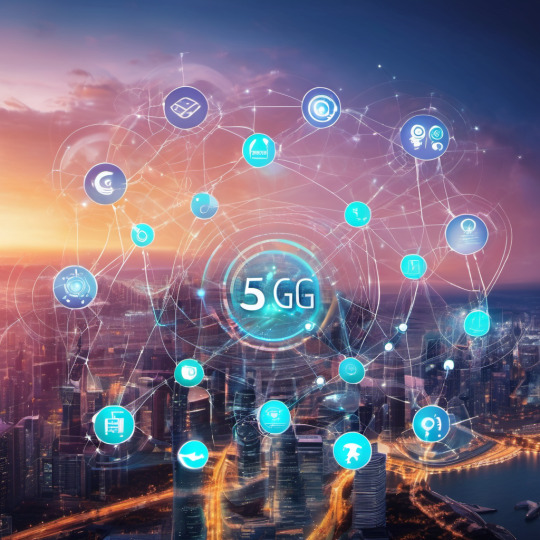
In the dynamic landscape of technological innovation, 5G technology stands as a beacon, heralding a new era of hyperconnectivity. With its unparalleled speed, reliability, and low latency, 5G is not just an upgrade but a revolutionary leap forward in the realm of telecommunications.
5G Technology: Unleashing the Power of Hyperconnectivity begins with its promise to transform industries, societies, and daily lives. From enabling lightning-fast downloads and seamless streaming to empowering advanced applications such as autonomous vehicles and remote surgery, the impact of 5G is boundless.
In the realm of healthcare, 5G technology is poised to revolutionize patient care through telemedicine, remote monitoring, and real-time data transmission. Imagine a world where doctors can perform surgeries from thousands of miles away with precision and confidence, thanks to the low latency offered by 5G networks.
Education is another sector set to benefit immensely from the advent of 5G. With the power of hyperconnectivity, students can access immersive learning experiences, collaborate in real-time with peers across the globe, and tap into a wealth of educational resources like never before. 5G Technology: Unleashing the Power of Hyperconnectivity is not just about speed; it's about breaking down barriers to knowledge and fostering a more interconnected world.
Businesses are also gearing up to harness the transformative potential of 5G technology. From manufacturing and logistics to retail and finance, organizations are leveraging 5G to enhance efficiency, productivity, and customer experiences. With the ability to connect millions of devices seamlessly, 5G is the cornerstone of the Fourth Industrial Revolution.
The entertainment industry is experiencing a paradigm shift with the advent of 5G. Streaming services are delivering high-definition content in real-time, augmented reality (AR) and virtual reality (VR) experiences are becoming more immersive, and gaming is reaching new heights of interactivity. 5G Technology: Unleashing the Power of Hyperconnectivity is not just about consuming content; it's about experiencing it in ways previously unimaginable.
As we embrace the possibilities of 5G technology, it's essential to address concerns surrounding privacy, security, and digital inclusion. With greater connectivity comes greater responsibility, and stakeholders must work together to ensure that the benefits of 5G are accessible to all, without compromising on privacy or security.
Governments and regulatory bodies play a crucial role in shaping the future of 5G technology. By fostering innovation, investing in infrastructure, and establishing clear regulatory frameworks, policymakers can unlock the full potential of 5G and drive economic growth and prosperity.
In conclusion, 5G Technology: Unleashing the Power of Hyperconnectivity is not just a technological advancement; it's a catalyst for progress and innovation across all sectors of society. By embracing the opportunities afforded by 5G and addressing the challenges it presents, we can create a more connected, efficient, and inclusive world for generations to come.
#5GTechnology#Hyperconnectivity#Telecommunications#DigitalTransformation#Innovation#Healthcare#Education#Business#Entertainment#PrivacySecurity
1 note
·
View note
Text
Hugelkulter High Density Fruit Tree Bed (Or Heather's Humor Odyssey)
“Soooo, what have you been up to, you crazy little gardener?” Well. Actually, I’ve been very, very busy. Busy, busy, busy. Mainly, because I don’t know how not to be. I fill my free time with projects and experiments. Once I get these ideas for new projects, I get a bee in my bonnet until I can work it out in reality. I am a person who thinks in webs. My thoughts are so far from linear it…

View On WordPress
#80&039;s impact dot matrix printer#double digging#food forest#Fruit tree high density#guilds#high intensity#hugelkulter#hugelkulter trench#hyperconnectivity#introvert#keyhole#knee high#lasagna#look! Squirrel!#no dig#permaculture#web brain#worm tower
0 notes
Text
Hugelkulter High Density Fruit Tree Bed (Or Heather's Humor Odyssey)
“Soooo, what have you been up to, you crazy little gardener?” Well. Actually, I’ve been very, very busy. Busy, busy, busy. Mainly, because I don’t know how not to be. I fill my free time with projects and experiments. Once I get these ideas for new projects, I get a bee in my bonnet until I can work it out in reality. I am a person who thinks in webs. My thoughts are so far from linear it…

View On WordPress
#80&039;s impact dot matrix printer#double digging#food forest#Fruit tree high density#guilds#high intensity#hugelkulter#hugelkulter trench#hyperconnectivity#introvert#keyhole#knee high#lasagna#look! Squirrel!#no dig#permaculture#web brain#worm tower
0 notes
Text
not my brain trying to find links between the old special interest and the new hyperfixation
2 notes
·
View notes
Text
The 'Boredom Renaissance' | Boost Mental Health by Embracing Empty Moments
Discover the 'Boredom Renaissance' and how embracing empty moments can enhance mental health in a hyperconnected world. Learn to find creativity and peace in stillness.
#Benefits of boredom#Boredom renaissance#Digital detox and mindfulness#Mental health in a hyperconnected world
0 notes
Text
Xiaomi HyperOS 2: innovaciones que transforman la experiencia tecnológica
Estas tres innovaciones incluyen funciones avanzadas como transcripción automática, subtítulos en tiempo real y fondos de pantalla animados, que elevan la personalización y productividad del usuario. Continue reading Xiaomi HyperOS 2: innovaciones que transforman la experiencia tecnológica

View On WordPress
#avanzadas#conectividad#experiencia#funciones#HyperAI#HyperConnect#HyperCore#HyperOS#HyperOS 2#Productividad#xiaomi
0 notes
Text
Strategies for Unplugging and Finding Balance in a Hyperconnected World: Digital Detox
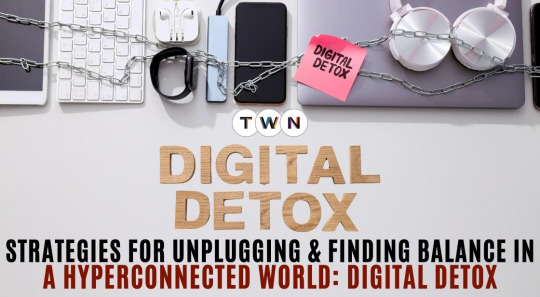
Strategies for Unplugging in a Hyperconnected Society
1. Understanding Hyperconnectivity: The Digital Age Dilemma
What is Hyperconnectivity Definition:
Hyperconnectivity describes the perpetual state of being connected to digital devices and online platforms.
It entails continuous access to information and communication channels, regardless of time or location.
Integration of Technology:
In the digital age, technology has become deeply ingrained in various aspects of daily life.
Boundaries between work, leisure, and personal time have blurred due to the constant accessibility of digital tools.
Challenges of Hyperconnectivity:
Information Overload: With vast amounts of data available at our fingertips, individuals may struggle to process and prioritize information effectively.
Digital Fatigue: Constant exposure to screens and notifications can lead to mental exhaustion and burnout.
Decreased Productivity: Distractions from digital devices may hinder concentration and hinder task completion.
Importance of Understanding Hyperconnectivity:
Recognizing the implications of hyperconnectivity is essential for addressing its challenges.
Understanding its impact allows individuals to adopt strategies to manage digital habits and find balance in a tech-centric world.
To Read This Full ARTICLE, Click Here
0 notes
Text

Hey there digital nomads! Let’s dive into the fascinating world of digital minimalism – the art of finding balance in our hyperconnected lives.
You’re sitting on your porch on a cosy summer evening and you find yourself scrolling through your phone for what feels like the hundredth time that day. Suddenly, it hits you – why are you constantly glued to this little screen, missing out on life’s simple pleasures?
That pivotal moment sparks your journey into the realm of digital minimalism. It’s all about taking back control of your life and breaking free from the incessant pull of technology. As you venture deeper into this uncharted territory, you stumble upon some incredible stories and learn a few invaluable lessons.
Continue Reading: https://rytlife.com/unplugging....-in-a-hyperconnected
1 note
·
View note
Video
youtube
Deal with Distractions with these 7 Proven Techniques | Consistency is T...
"Unlock Your Focus Potential! Discover the Most Effective Methods to Tackle Distractions Head-On. From Mindful Multitasking to Digital Detox Breaks, we'll share the Secrets to Boosting Productivity. Design Your Distraction-Free Oasis and Find Balance in a Distracted World. Join us on this Journey to Mastering Focus and Achieving Success!"
#youtube#Distraction-Free Productivity#Mastering Focus in a Distracted World#distraction management#Strategies for a Focused Mind#Proven Methods for Laser-Sharp Focus#Taming Distractions with Purpose#Distraction-Free Environment#Focus in a Hyperconnected Era#Balancing Focus and Efficiency#Distraction-Free Success#Consistency routine
0 notes
Text
Unethical Behavior In The Digital Age: Navigating Ethical Challenges In A Hyperconnected World

In today's hyper-connected world, where digital technology permeates every aspect of our lives, the prevalence of behaving unethically has become a significant concern. From privacy breaches and cyberbullying to online scams and data manipulation, the digital age has introduced a new frontier of ethical challenges. This article delves into the complexities of unethical behavior in the digital realm, highlighting the importance of navigating these challenges and fostering a more ethical digital culture.
What Do You Understand By Unethical Behavior In A Company?
Unprofessional behavior in a company refers to actions or conduct by individuals or groups within an organization that violates ethical principles, values, or standards. It involves behavior that deviates from accepted moral norms and can harm the well-being of individuals, the organization, and its stakeholders. Unprofessional behavior in a company can take various forms and may include:
Fraudulent activities: Engaging in deceit, misrepresentation, or manipulation of financial information for personal gain or to deceive stakeholders.
Discrimination and harassment: Treating employees, customers, or stakeholders unfairly or engaging in discriminatory practices based on factors such as race, gender, religion, or disability. Harassment can involve creating a hostile work environment, bullying, or sexual harassment.
Conflict of interest: Placing personal interests above the best interests of the company, such as accepting bribes or kickbacks, engaging in insider trading, or favoring family or friends in business dealings.
Misuse of resources: Using company resources, including time, equipment, or funds, for personal gain or non-work-related activities without proper authorization.
Insider information abuse: Exploiting privileged or confidential information about the company for personal advantage or sharing it with others who may use it for illegal or unethical purposes.
Breach of confidentiality: Unauthorized disclosure of sensitive or confidential information, violating agreements, or breaching customer privacy.
Non-compliance with laws and regulations: Ignoring or circumventing legal and regulatory requirements, such as environmental regulations, safety standards, or labor laws.
Supplier or contractor abuse: Engaging in unethical practices with suppliers or contractors, such as unfair pricing, exploitation of labor, or engaging with unethical business partners.
Misleading advertising and marketing practices: Engaging in false advertising, deceptive marketing techniques, or withholding information to mislead customers or gain a competitive advantage.
Lack of transparency and accountability: Failing to provide accurate and honest information to stakeholders, withholding crucial information, or evading responsibility for one's actions.
Importance Of Navigating Ethical Digital Culture
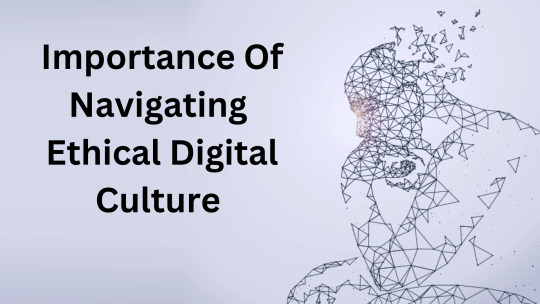
Here are some key points we need to look at.
The Rise of Unethical Action in the Digital Landscape
Examining the factors contributing to the surge in unprofessional behavior in the digital age.
Exploring the anonymity and perceived detachment in online interactions as catalysts for unethical conduct.
Discussing the influence of social media and digital platforms in amplifying unprofessional action.
Privacy and Data Protection: Ethical Implications in the Digital Era
Analyzing the ethical concerns surrounding the collection, storage, and use of personal data.
Addressing the impact of data breaches and unauthorized data sharing on individuals and society.
Evaluating the responsibility of organizations and increase employee engagement in safeguarding privacy rights.
Cyberbullying and Online Harassment: Combating Digital Cruelty
Unpacking the ethical dilemmas associated with cyberbullying and online harassment.
Examining the psychological, emotional, and societal consequences for victims.
Highlighting preventive measures, awareness campaigns, and legal actions to combat cyberbullying.
Manipulation, Disinformation, and Fake News: Ethical Challenges in the Digital Information Age

Exploring the ethical implications of information manipulation, disinformation, and fake news.
Analyzing the impact on public opinion, democratic processes, and social cohesion.
Discussing strategies to promote digital media literacy and critical thinking.
Addressing Unprofessional Behavior in Digital Businesses and E-commerce
Examining the ethical challenges in Workplace Productivity, advertising, and e-commerce practices.
Discussing issues such as deceptive practices, online fraud, and customer data exploitation.
Proposing ethical guidelines for businesses to build trust and accountability.
Nurturing Ethical Digital Citizens: Education and Awareness
Emphasizing the role of education in fostering ethical behavior in the digital age.
Discussing the importance of digital citizenship programs and media literacy initiatives.
Highlighting the role of parents, schools, and communities in promoting responsible digital behavior.
Also Watch: EmpMonitor|Leading Employee Engagement and Workforce Productivity Tool
youtube
Conclusion
As technology continues to advance and shape our lives, addressing unethical behavior in the digital age is paramount. Navigating the complex web of ethical challenges requires a collective effort from individuals, organizations, and society as a whole. By fostering a culture of digital ethics, we can create a safer and more inclusive digital landscape that benefits everyone.
#Unethical Behaviour#Digital Ethics#Hyperconnected World#Navigating challengaes#Digital Landscape#Youtube
0 notes
Text
Pluto in Aquarius

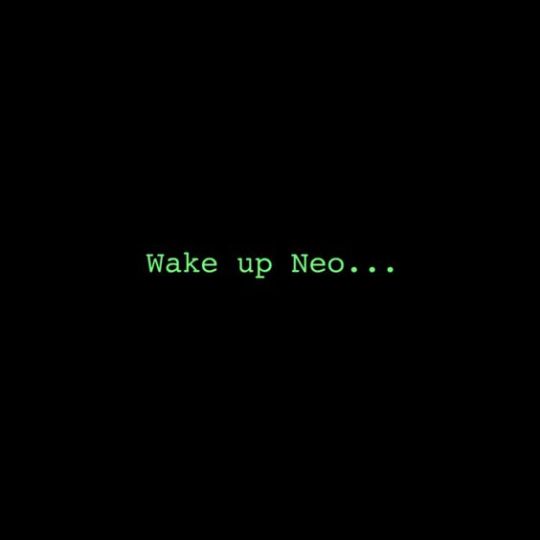
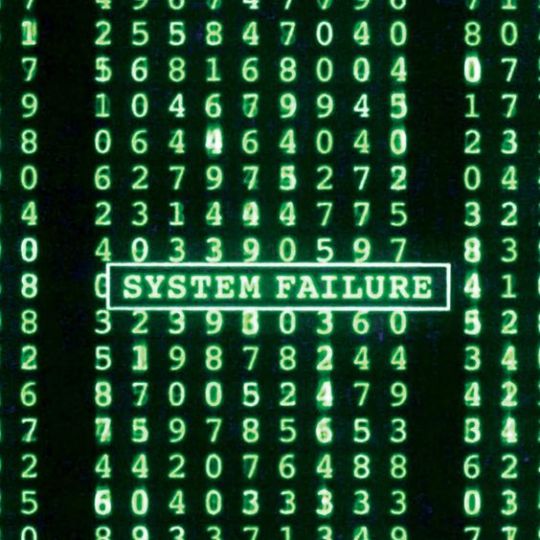
I'll give you a dose But it will never come close To the rage built up inside of me Fist in the air, in the land of hypocrisy
✶November 19, 2024 to January 19, 2044✶
Aquarius/Uranus rules: rebellion, innovation, thinking outside the box, youth, young adults, community, contribution to the community, groups, breaking conventions, dreams, ideas, surprises, accomplishments, social networks, social causes, social problems, dissatisfaction, uniqueness, agitation, fighting for ideals, fighting for ideas, new, future, future plans, technology, artificial intelligence, online groups, internet, unpredictability, rebellion, innovation, revolt, radicalism, chaos, revolution, turbulence, dissatisfaction, future, astrology, astronomy, gender equity, outer space, UFOs, programming, camaraderie, visionary, questioning, recycling, social responsibility.
Maybe we will feel like a new chapter is beginning because it is, however I would like to say that it is not yet the definitive end of an Era, that will only happen when Pluto enters Pisces and then begins its cycle again with Aries (2068–2098). Only then will we have the beginning of a new Era for humanity. That’s why it’s important for us to pay close attention to how we handle the pending social issues of this Era, such as: global warming, water resources, non-renewable energy sources (oil), gender inequality, humanitarian crises, hyperconnection, artificial intelligence, fake news, deep fakes.
I believe with all my being, with all my intuition, that if we do not take care of our planet now, when we are about to feel the force of Pluto in Aquarius acting on the collective (Earth), future generations—my children, your children, our grandchildren—will suffer greatly from the scenario that Pluto in Taurus (2097–2129) will bring. This generation will certainly pay for all the irreversible damage we have caused to the Earth. This is my intuition and my premonition, and I believe in it with my life. We must take care of this planet while there is still time.
Aquarius is also the opposite (opposition) of Leo, so leonine figures, as well as leonine themes, will go through certain challenges—this is a time of change.
When Pluto was last in Aquarius (1777–1798)
Lenormand was alive;
Yes, the creator of the Lenormand tarot was alive when Pluto was last in Aquarius, with the gift of vision running through her veins. Pluto in Aquarius guided this incredible seer through the paths of divination. Moreover, Marie Anne was part of the French Revolution and the Napoleonic Era.
French Revolution;
Declaration of the Rights of Woman and the Female Citizen by Olympe de Gouges;
Creation of the guillotine;
The “fall” of the monarchy;
The “fall” of absolutism;
Creation of the United States of America as an independent country;
The Enlightenment as the “predominant form” of thought.

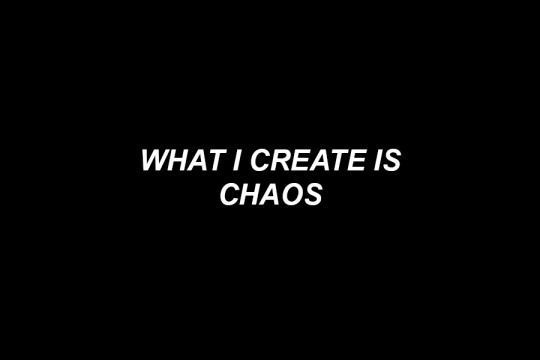
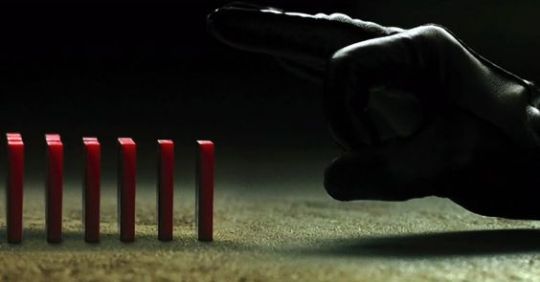
Predictions
Return of Cicada 3301
This is a more personal prediction. I feel that with Uranus entering Gemini and Pluto in Aquarius, we will see a boom in all matters related to the internet. Pluto rules sects and secret groups, which is exactly what Cicada 3301 is.
More violent protests
Protests will become more violent due to Pluto’s influence, which acts as an “amplifier” (similar to Jupiter), but Pluto intensifies extreme emotions. Therefore, if the collective is very dissatisfied, this dissatisfaction will be tripled, and as a result, the protests will become more intense.
Advancement or colonization of Mars
Elon (Mars in Aquarius in the 8th house) and his team will certainly make great progress when it comes to advancing the colonization of Mars, as outer space is ruled by Uranus, the ruler of Aquarius. Thus, I believe that we, as humanity, will move forward toward space-related achievements.
Changes regarding misogyny in India (Parts of Asia)
There is still a dramatic scenario in 2024 occurring in parts of India and East Asia, where baby girls are abandoned or killed simply for being girls. Korean women still face a great deal of gender disparity in the workplace.
Behavioral shift in South Korea
South Korea still has a social landscape that does not favor gender equality.
New social network emerging
Yes, a new social network (or more) is on the horizon, as Uranus in Gemini (Air) and Pluto in Aquarius (Air) have joined forces to bring many innovations.
Social network ceasing to exist
Pluto speaks about death, and in this case, since it rules the internet, apps, and social networks, a certain social network has a high probability of ceasing to exist.
Change in beauty standards
Pluto in Aquarius will make a direct opposition to Leo, which, like Libra, dictates beauty standards and trends. The Aquarius-Leo axis deals with fashion, trends, individual tastes, and collective style.
Growth of astrology
Aquarius literally rules astrology, predictions, and our starry sky full of planets. With Pluto in Aquarius, the market is likely to see a boom in books, courses, and debates about astrology. Its importance will grow significantly.
Growth in the quality of electronic music
DJs, in particular, will be producing music and melodies that will “touch” the audience on a deeper level. As a result, we will have higher-quality music and new electronic hits emerging.
Hollywood will undergo a drastic transformation
Hollywood is literally one of the biggest symbols of Leo (with a strong influence from Neptune, as Neptune rules cinema and cinematic art). With Pluto in Aquarius making a direct opposition to this sign, we will see major transformations in aspects I can’t yet predict concerning Hollywood and its actors and actresses.
Aquarian figures gaining power and fame
Whether they have personal planets in Aquarius or simply embody this archetype.
Gigantic growth of AI
We will end Pluto in Aquarius with so many innovations and machines compared to what we have now. The question arises: could AI ever gain self-awareness? (...who knows?)
The masses will be more dissatisfied/questioning
We will be unconsciously reevaluating the rules imposed by society. As a result, feelings of dissatisfaction may arise at various times, leading to rebellion, strikes, and protests.
Greater contact with Space
Aquarius rules the starry sky, space, and everything strange to Earth. With Pluto in Aquarius, we will be more inclined to explore space, and we may even finally receive confirmations regarding extraterrestrial life.



Places most affected:
Argentina – Moon in Aquarius 27°03’
São Paulo – Sun in Aquarius 14°51’
China – Ascendant in Aquarius 5°56’
United States – Moon in Aquarius 26°58’
Brazil – Ascendant in Aquarius 28°10’
Cuba – Ascendant in Aquarius 17°30’
India – Midheaven in Aquarius 14°49’
South Korea – Sun in Leo 21°40’ (opposition to Pluto in Aquarius)
Los Angeles – Midheaven in Leo 1°26’ (opposition to Pluto in Aquarius)
Tokyo – Moon in Leo 6°06’ (opposition to Pluto in Aquarius)
India – Sun in Leo 21°07’ (opposition to Pluto in Aquarius)
Mexico City – Sun in Leo 3°11’ (opposition to Pluto in Aquarius)
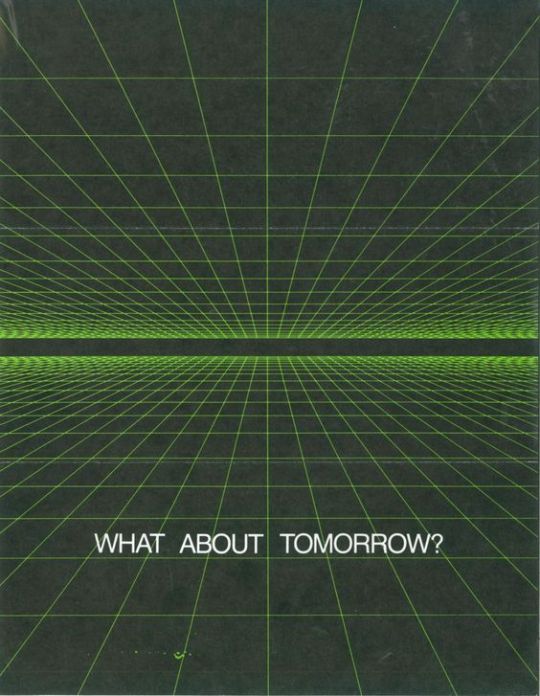

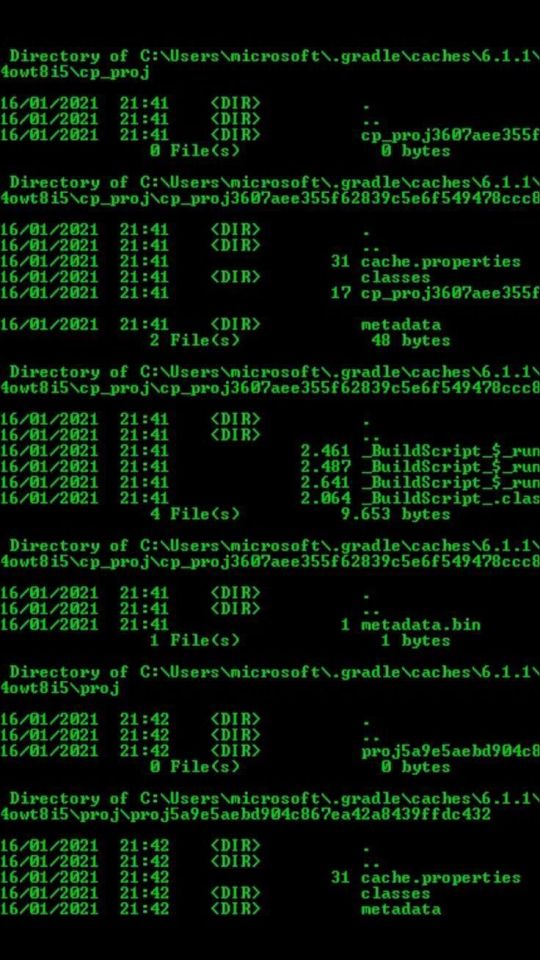
To conclude, I want to make it very clear that I feel a significant event of large proportions will occur when Pluto in Aquarius, at its final degrees, opposes Uranus in Leo, starting around 2038 or 2039. This movement will greatly impact society.
“Ideas are bulletproof!”
— V for Vendetta

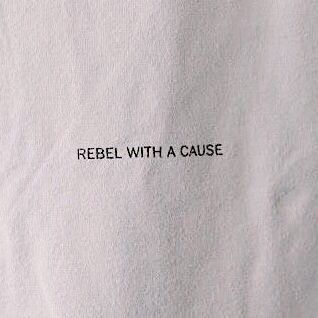

#astro community#astro notes#astrology notes#astro observations#astrology#astrology observations#aries#astroblr#leo#taurus#astrology signs#12th house#astrology readings#astro placements#witchcraft#witchblr#witches#witchcore#witchy vibes#pluto#saturn#the plutonians#asteroids#jupiter#mars#uranus#lenormand#tarot reading#tarot cards#tarotblr
327 notes
·
View notes
Text
McMurdo Internet
Internet service is supplied to Antarctica via a geostationary satellite. This far south, the satellite is only a few degrees above the horizon, and unfortunately for McMurdo, it's behind Mt Erebus. So the signal is beamed to a receiver on Black Island, about 20 miles away to the southwest, and bounced over to the sheltered alcove at the end of the Hut Point Peninsula where McMurdo sits.
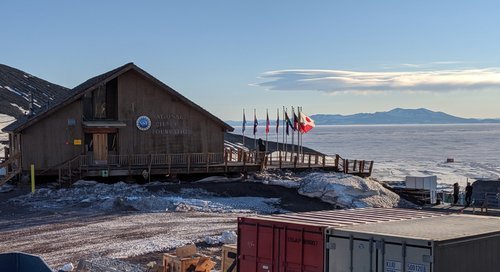
The Chalet, administrative hub, with Black Island in the distance
The Black Island telecommunications infrastructure was installed in the 1980s, long before the internet we know and love today. It was upgraded in 2010 to allow more data transfer, mainly realtime weather data to feed into global forecast models. For this reason, it's probably the only place I've ever been where upload speed is remarkably faster than download speed – 60Mbps for outbound traffic, but only 20Mbps for inbound. Most regular internet use is receiving, not sending, so that's an entire base running on a connection that's only marginally faster than the average American smartphone. As you can imagine, this is somewhat limiting.
The limits to one's internet access actually begin before one even reaches the Ice. At the orientation in Christchurch, one is directed to a URL from which one must download and install a security programme from the U.S. government. It may feel like a hippie commune full of nerds, but McMurdo is an installation of the American state, and as such its computer network is a target of whatever disgruntled conspiracy theorist decides to hack The Man on any given day. Computers that are allowed onto this network (such as the one on which I am typing right now) have to have an approved firewall and antivirus service installed, then this extra programme on top of them. I am not sure what it does. For all I know the CIA is spying on me even now. (Hi, guys!) But you need to install it to get on the McMurdo Internet, such as it is, so I did.
To be honest, I was rather looking forward to a month cut off entirely from the hyperconnected world, so I was a tiny bit disappointed that quite a lot of day-to-day communication is done by email, and I would need to be on my computer a fair bit to get it. Had I known just how important email would be, I'd have installed an email client that actually downloads one's messages instead of just fetching them; as it was, the cycle of loading an email and sending the reply, even in Gmail's "HTML for slow connections" mode, took about five minutes, not counting the time it took to write. Tending one's email was a serious time commitment; sometimes I felt like I was spending more time on the computer in Antarctica than I did at home.

Crary scientists waiting, and waiting, and waiting
In a way, though, I was lucky, because I was technically a scientist and therefore had access to the one building on base with WiFi, the Crary Lab. And don't think you can just waltz into Crary with your laptop and poach the WiFi – in order to access it at all, you have to get set up by Crary IT with your own personal WiFi login. If you do not have Crary access, your portal to the Internet is one of a handful of ethernet cables in each of the dorm common rooms, or some public terminals in the main building. You can hop on, download your emails, maybe check the news or Google something you needed to look up, and then leave it for someone else. When most online time sinks are either blocked or too heavy to load, it’s amazing how little internet time you actually turn out to need.
Things that we have come to take for granted in The World are not a part of McMurdo life. Social media is pretty much out – the main platforms are bandwidth hogs even before you try to load a video or an animated GIF. There is no sharing of YouTube links, and no Netflix and chill. Someone was once sent home mid-season for trying to download a movie. Video calls with family and friends? Forget it. People do occasionally do video calls from Antarctica, often to media outlets or schools, but these have to be booked in advance so as to have the requisite bandwidth reserved. Jumping on FaceTime does not happen – not least because handheld devices have to be in airplane mode at all times for security reasons. Your phone might be secure enough for your internet banking, but not for US government internet!
It is, unavoidably, still a digital environment, it just gets by largely without internet access. Nearly everyone has an external hard drive, mostly for media that they've brought down to fill their off hours. If you want to share files you just swap hard drives, or hand over a memory stick. When the Antarctic Heritage Trust wanted some book material from me, I dropped it onto an SD card and ran it over to Scott Base on foot – a droll juxtaposition of high- and low-tech, not to mention a good excuse for a hike over The Gap on a beautiful day. It took half an hour, but was still faster than emailing it.
There is also a McMurdo Intranet, which includes a server for file sharing. Emailing someone your photos will take ages, but popping them into a folder on the I: drive and sending them a note to say you've done so (or, better yet, phoning them, or poking your head into their office) is much more efficient. To conserve space, this informal server partition is wiped every week, so you have to be quick about it, but it's an effective workaround, and also a good way to get relatively heavy resources to a large number of people in one go.
The telecommunications centre on Black Island is mostly automated, but like anything – perhaps more than some things, given the conditions – it needs to be maintained. There is a small hut out there for an equally small team of electricians and IT engineers; Black Island duty attracts the sort of person who might have been a lighthouse keeper back in the day.
Towards the end of my time on the Ice there was a spell where they needed to shut off the connection overnight, to do some necessary work. Given that most people's workdays extended at least to the shutoff time at 5:30 p.m., this meant essentially no internet for a large portion of the population, and some amusing flyers were posted up to notify everyone of the impending hardship.
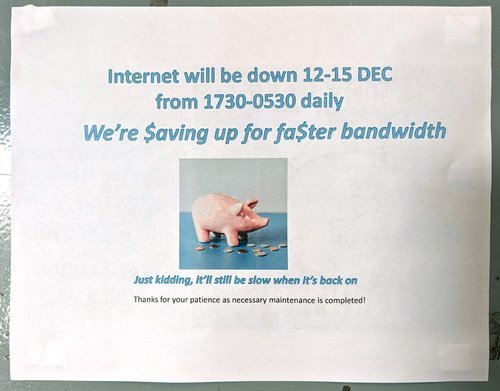
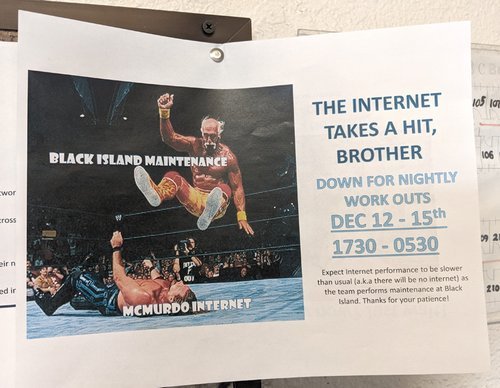
Someday, faster, more accessible internet will come to Antarctica. It's more or less unavoidable, as communications technology improves, and everyone's work – especially the scientists' – depends more and more on having a broadband connection at all times. It will make a lot of things more convenient, and will make the long separation from friends and family much easier. But I'm pretty sure that many more people will mourn the upgrade than celebrate it. One can, theoretically, curtail one's internet use whenever one likes, but even before the pandemic it was almost impossible to live this way with the demands of modern life: I know from personal experience that opting out of Facebook alone can have a real detrimental effect on relationships, even with people one sees in the flesh fairly regularly, simply because everyone assumes that is how everyone else communicates. Being in a community where no one has access to assumed channels, and is more or less cut off from the rest of the world in a pocket universe of its own, levels the playing field and brings a certain unity. The planned (and, unarguably, necessary) updating of the physical infrastructure of McMurdo will wipe out a lot of the improvised, make-do-and-mend character of the place; how much would free and easy access to the online world change it in a less tangible way?
I'm sure the genuine Antarctic old-timers would shake their heads at the phone and email connections we have now, and say that no, this has already ruined Antarctica. It's not Antarctica unless your only link to the outside world is a dodgy radio. It's not Antarctica unless you only get mail once a year when the relief ship arrives. Doubtless the shiny new McMurdo will be seen as 'the good old days' by someone, someday, too. Change may happen slower there than elsewhere, but just like the rust on the tins at Cape Evans, it comes eventually, regardless.
For my own part, I'm glad I got to see 'old' McMurdo, such as it was, all plywood and cheap '90s prefab. The update will be much more efficient, and tidy, but yet another generation removed from the raw experience of the old explorers. My generation is probably the last to remember clearly what life was like before ubiquitous broadband; to some extent, Antarctica is a sort of time capsule of that world, just as the huts are a time capsule of Edwardian frontier life. I hope they'll find a way to hang on to the positive aspects of that.
Now, if you'll excuse me, I'm off to waste an hour mindlessly refreshing Twitter ...
If you'd like to learn more about the Black Island facility, there's a lot of good information (and some photos!) here: https://www.southpolestation.com/trivia/90s/blackisland.html
And this Antarctic Sunarticle goes into greater depth on the 2010 upgrade: https://antarcticsun.usap.gov/features/2114/
269 notes
·
View notes
Text
"I’ve written about innate traits of autism and adhd in separate posts, so I wanted to write about similarities and differences between these closely related neurotypes.
Innate traits of Autism are neural hyper-connection, monotropism, and bottom up processing. Innate traits of ADHD are neural hyperconnection, monotropism and holotropism, and flexible processing styles (both bottom up and top down).
Distress symptoms of each of these neurotypes are listed in the DSM as diagnostic criteria, which leads to great confusion about these neurotypes.
Some Autistic and/or ADHD people go their entire lives without any recognition of their neurodivergence - this is true for many people in our parents and grandparents generation.
Many Autistic and ADHD people are never formally diagnosed but seek out ways to affirm and support their neurotype without diagnosis.
In a fully supportive environment, an Autistic or ADHD person may not display enough distress symptoms to fit the diagnostic criteria. It’s been a joy to personally witness Autistic and ADHD children being raised by parents who understand their kids neurological needs. These parents struggle to get accommodations for their children because they aren’t displaying enough distress behaviors.
Autistic and ADHD people who mask or fawn a lot are frequently not diagnosed because masking internalizes their distress symptoms. High-masking neurodivergent people often experience a burnout episode which leads them to display a lot of distress responses which leads them to a recognition of their Autism or ADHD.
Autism and ADHD are genetically closely related. There are about 200 total genes which code for Autism & ADHD and people only need a handful of these genes to express Autistic/ADHD phenotypes. Autistic parents typically have Autistic kids and ADHD parents typically have ADHD kids but Autistic parents can also have ADHD kids and ADHD parents can have Autistic kids.
I think someday people might consider Autism, AuDHD, and ADHD to be different profiles of the same neurotype. I’m AuDHD myself so I have a difficult time making a clear distinction between what Autism is and what ADHD is.
I see validity in seeing them as parts of the same thing and also in seeing them as distinct from each other. I’m not invested in looking at it one way or the other.
To clarify what I mean by parts of the same thing I am NOT suggesting that adhd = autism or autism = adhd. I am also not suggesting that autisic and adhd people have the same support needs.
The idea that they are parts of the same thing is like saying a foot and an ear are both part of an elephant. Obviously a foot is not an ear and an ear is not a foot and the foot and ear have different needs, but both are part of the elephant.
IF Autism and ADHD are distinct parts of the same genetic neurotype, that neurotype has not yet been named.
PDA and several other types of neurodivergence could also be distinct profiles of the same overarching genetic type."
https://www.facebook.com/share/p/18eUHWJYBH/
9 notes
·
View notes